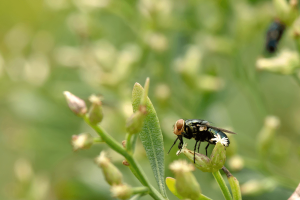
Non-coeliac gluten/wheat sensitivity (NCGWS) refers to gastrointestinal and extraintestinal symptoms triggered by gluten or wheat ingestion in people without coeliac disease or wheat allergy. Symptoms improve after wheat or gluten avoidance and recur upon re-exposure. The underlying mechanisms and biomarkers remain unclear, though awareness has been raised due to public interest in gluten-free diets. Diagnosing NCGWS is challenging; the Salerno Expert’s criteria recommend a placebo-controlled, double-blind, crossover gluten challenge; however, few individuals show true gluten-specific symptoms. The burden of NCGWS in the general population globally remains unclear. This is well explained in the systematic review and meta-analysis published in Gut. This study aimed to determine the clinical features and global prevalence of self-reported NCGWS.
This study was registered in the International Prospective Register of Systematic Reviews (PROSPERO) with registration number CRD420251050152 and conducted according to the guidelines of Preferred Reporting Items for Systematic Reviews and Meta-Analysis (PRISMA) 2020. Four databases (Web of Science, Embase, Medline, and Scopus) were systematically searched for studies related to the prevalence of self-reported NCGWS in the general population without limit to language or publication date. Studies like clinical guidelines, editorials, and focus on the prevalence of wheat/gluten avoidance, case reports, gluten-challenge clinical trials, and letters were excluded from this analysis. The risk of bias was examined through the Newcastle-Ottawa scale. A random effects meta-analysis was conducted by Stata 18 to estimate prevalence, odds ratios (ORs), and heterogeneity (I2). Publication bias, sensitivity, and subgroup analysis were performed, in which p < 0.05 was statistically significant.
A total of 25 studies were included in this study, containing 49,476 participants (male = 10,232; female = 14,136; self-reported NCGWS = 3892) across 16 countries and 5 WHO regions (Eastern Mediterranean, Europe, Western Pacific, Americas, and South-East Asia). The pooled prevalence of self-reported NCGWS among the general population was found to be 10.3% (95% confidence interval [CI]: 7-14%), showing high heterogeneity across the studies (I2 = 99.7%). Funnel plot asymmetry indicated a possible small-study effect or publication bias (p <0.0001). Subgroup analysis demonstrated that statistically significant differences were observed in the prevalence rates of self-reported NCGWS between WHO regions (p <0.001) and countries (p <0.001). Moreover, there was no statistically significant difference reported in the prevalence rate between adults and children, with p = 0.11.
The prevalence of reporting NCGWS in females was 14% (95% CI: 9-19.1%) compared with males (7.6%, 95% CI: 3.6-11.6%). Females showed a significantly higher likelihood of reporting NCGWS compared with males, with an OR of 2.29 (95% CI: 1.80- 2.90) and p <0.001. Approximately 40% (95% CI: 25.2-55%) of individuals self-reported NCGWS were followed by a gluten-free diet regimen among 16 studies.
Various common symptoms occurred among self-reported NCGWS individuals, including abdominal pain (36.0%; 95% CI: 28.6-43.2%), fatigue (32.1%; 95% CI:25.3-39.0%), rash (7.3%; 95% CI: 4.8-9.7%), abdominal discomfort (46.0%; 95% CI: 39.0-52.7%), diarrhea (20.8%; 95% CI:15.8-25.8%), bloating (71.0%; 95% CI: 62.8-79.1%), constipation (26.1%; 95% CI: 21.1-31.2%), and headache (18.2%; 95% CI:12.6-23.7%).
Self-reported NCGWS participants were significantly more likely to experience anxiety (OR = 2.95; 95% CI:1.56-5.57; p<0.001), depression (OR = 2.42; 95% CI:1.80-3.24; p<0.001), and irritable bowel syndrome (OR = 4.38; 95% CI: 3.34-5.75; p<0.001) compared to controls. The pooled prevalence of self-reported wheat allergy and coeliac disease was 0.8% (95% CI: 0.4-1.2%; I2 = 93.7%) and 0.7% (95% CI: 0.4-1.0%, I2 = 96%), respectively.
This study had several limitations, including high unexplained heterogeneity, based on self-reported NCGWS prone to misclassification or recall bias, limited regional data, and potential author bias.
This study concludes that self-reported NCGWS affects about one in ten individuals globally, varies geographically, and links strongly with psychological distress, females, and irritable bowel syndrome. This highlights the need for tailored management and symptom-based diagnostic approaches.
Reference: Shiha MG, Manza F, Figueroa-Salcido OG, et al. Global prevalence of self-reported non-coeliac gluten and wheat sensitivity: a systematic review and meta-analysis. Gut. 2025. doi:10.1136/gutjnl-2025-336304












